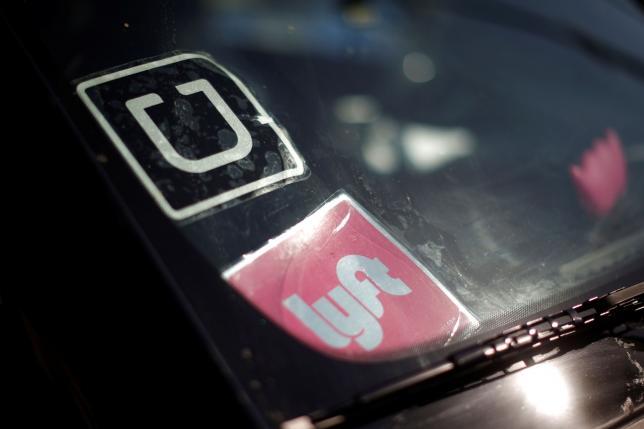A flurry of deals between big automakers and ride hailing and transportation startups is rewriting the playbook in the contest to control the future of personal transportation.
Automakers now recognize they may turn ride-hailing services and car sharing companies into steady customers for all sorts of vehicles, particularly hybrid and electric cars, industry executives and analysts say.
Tie-ups with carpooling services or short-term rental companies help automakers expose consumers to brands they might otherwise ignore. Technology companies offer access to troves of consumer data, and sophisticated ways to analyze them.
From the automakers, the Silicon Valley mobility companies obtain fresh capital, access to auto industry engineers who know how cars work and discounts on vehicles for their drivers.
In the latest tie-up between an automaker and a transportation technology startup, German luxury car maker BMW AG said on Wednesday its BMW iVentures venture capital arm has invested an undisclosed amount in California-based Scoop Technologies, which offers a smartphone-powered carpooling service called Scoop.
On Tuesday, Toyota Motor Corp, the world’s No. 1 automaker by vehicle sales, said it was investing an undisclosed amount of money in Uber. Germany’s Volkswagen AG (VOWG_p.DE) said on the same day it would invest $300 million in Gett, a smaller ride-hailing company.
Earlier this year, General Motors Co acquired a stake in Uber rival Lyft, and the Detroit automaker is launching its own car-sharing and mobility ventures under the Maven brand. Ford Motor Co, Daimler AG and other major automakers have unveiled efforts to embrace ride-hailing and car-sharing services.
Automakers “want to make sure they are in the game,” as more consumers use ride sharing or carpooling, said Mark Short, an Ernst and Young partner who advises automakers on transactions. “To be in the game, you have to make investments in these companies.”
NEW SALES CHANNEL
In the case of Uber and Toyota, both could benefit from an alliance.
Uber “actually knows very little from its own experience about cars – how they’re made, how they work,” said Jan Dawson, technology analyst with Jackdaw Research. Uber has said it wants to develop self-driving cars – as does Toyota – and the two indicated they will collaborate on research.
Toyota said it expects to offer new ways for Uber drivers to buy Toyota cars, and could market Toyota and Lexus brand vehicles to Uber in bulk fleet sales. Details of these programs have yet to be decided, a Toyota spokesman said on Wednesday.
Toyota and some rival automakers currently offer discounts to drivers for Uber and its ride-hailing rival, Lyft. An Uber driver who wants to buy a Toyota Prius, for example, could receive a $750 discount. The Uber discount for a Ford Focus is $2,100, according to information on Uber’s website.
Uber said on Wednesday discounts from various automakers have saved its drivers more than $20 million on vehicle purchases globally as of the end of last year. As of last December, more than 50,000 people around the world had used its car discount program, Uber Vehicle Solutions, to buy or lease vehicles worth over $1 billion.
Ride hailing and car sharing companies could become outlets for automakers trying to sell more electric vehicles, or hybrid cars, to earn credits under U.S. federal and state environmental rules. The high costs of an electric car battery are more rapidly offset by ferrying passengers around a city all day than by a routine round-trip commute.
GM executives say Lyft will be an important customer for the automaker’s Chevrolet Bolt electric car, due to launch late this year.
BMW’s investment in Scoop is also aimed at selling vehicles, Ulrich Quay, managing director of BMW iVentures, said on Wednesday. Ride sharing can help the automaker get to know customers who have never driven a BMW, he said.
The Scoop application connects people who live in the same neighborhoods and work near each other to arrange carpools. The company currently operates in the San Francisco Bay area.
Source: REUTERS











